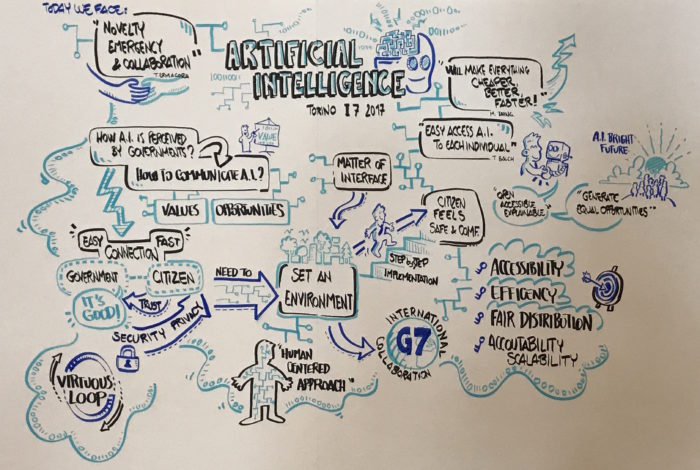Since its launch a few weeks ago, OpenAI’s ChatGPT has captured the imagination of users,…
Data / AI / ML, Entrepreneurship
“Technological innovation should give us hope, not despair.” Those words were a key part of the G7’s first-ever Innovation7, which was held last month in Turin, Italy. The Innovation7, or I-7, is a gathering of industry representatives from the G7 countries to help bridge industry and government. The theme of this summit was on making […]
Since its launch a few weeks ago, OpenAI’s ChatGPT has captured the imagination of users,…
The most powerful disruptions occur when a technology disruption and a business model disruption go…
“Technological innovation should give us hope, not despair.”
Those words were a key part of the G7’s first-ever Innovation7, which was held last month in Turin, Italy. The Innovation7, or I-7, is a gathering of industry representatives from the G7 countries to help bridge industry and government. The theme of this summit was on making the digital economy inclusive, open and secure and making technological advancement a source of well-being for all of mankind.
It was an absolute honour to be selected by the Canadian government as one of five delegates to represent my home country. And so, I set off for Turin to participate and advise on one of this year’s core themes: AI.
We in the tech world and private sector are quick to embrace new technologies. Yet it’s a whole different pace of adoption in government. Governments first seek input from experts to inform their policy making. And, part of the I-7’s mission is to educate policy makers on the possibilities and limitations of technology, while instilling confidence in their citizens and meeting their expectations of both the government and technology.
This summit had three parallel sessions on AI, Big Data, and Future of Work, to address three big questions, respectively:
For anyone who is curious to learn more about the I-7, you can find our work and output here.
During the AI sessions, I collaborated with delegates from other G7 nations on what AI can do for government. We started with the collective belief that AI can be a foundational engine for governments by 1) making governments and government services more accessible via modern, ubiquitous and personalized interfaces; and 2) making processes more efficient and accountable through automation.
The potential for AI in government is vast: think about how chatbots can lead to better services for citizens, or how AI can improve traffic management and emergency responses.

From there, we came up with actionable items related to the government-citizen interface, fairness and equality, efficiency and accountability, and customization.
I dug deeper into “equality and fairness” as this is something I’m particularly passionate about. This isn’t about AI’s ability to be fair or discriminate. Instead, I focused on how government should invest in AI as a tool to promote equality and fairness regardless of socioeconomic class, specifically to:
I’m happy to go into greater detail on any of the above if anyone would like to discuss it further.
This experience was my first in policy, and it made me think more deeply about my contribution to the world, as well as technology’s role (and responsibility) to tackle social challenges and give every human more opportunity.
As history has shown, technology has the power to transform the world. AI has the potential to radically increase access to key services and basic human rights: healthcare, education/knowledge, infrastructure, safety, science and research, etc.
It is my hope that increased access can lead to more opportunity for all of humankind. When people don’t have to worry as much about finding access to basic needs like healthcare, they are able to put so much more focus on creation and their contributions to society. It’s similar in concept to the Basic Income theory, except I believe in providing access to basic services (rather than a minimum stipend) as a means to collective economic growth.
AI can provide the technological foundation to make this happen, but, as the I-7 Chair Summary concludes, it’s up to experts and leaders across industry and government to ensure that people are at the heart of any technological advancement.
Crypto / Blockchain, Portfolio, Version One
We’re excited to announce our investment in Loon, a Canadian company building the country’s first regulated digital dollar. Version One led Loon’s $3M pre-seed round, alongside Garage Capital and a group of strategic Canadian angel investors. Loon is on a mission to create trusted, transparent payment infrastructure for Canada’s digital economy — starting with CADC, […]
As 2015 comes to an end, it’s time to reflect on what we’ve done and…
As the Internet evolves, the venture capital business starts evolving and we have been seeing…